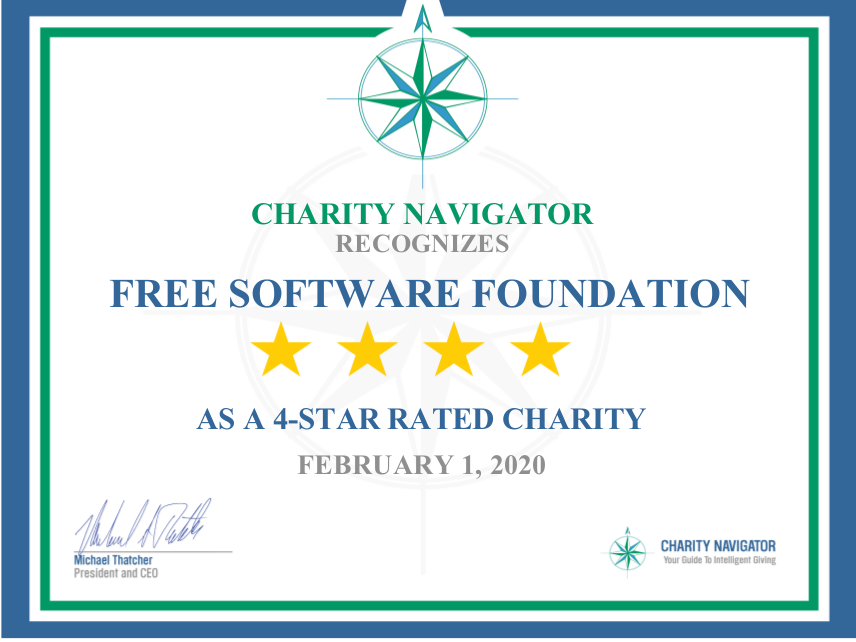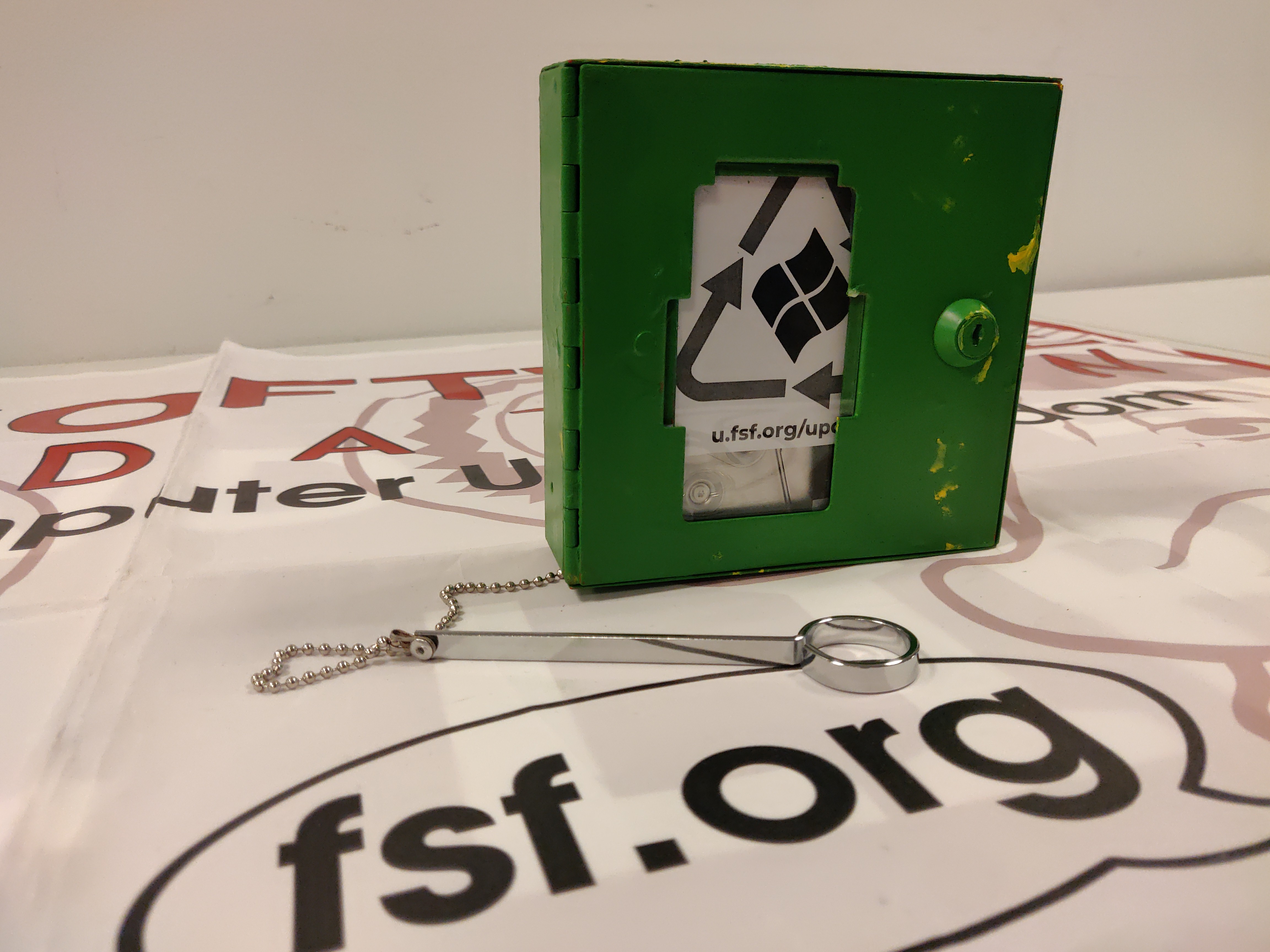Every year, Free Software Foundation Europe (FSFE) encourages
supporters to celebrate Valentine’s Day as “I Love Free Software
Day,” a day for supporters to show their gratitude to the people
who enable them to enjoy software freedom, including maintainers,
contributors, and other activists. It seems appropriate on this
holiday to once again address how seeking love on the Internet
is, unfortunately, laden with landmines for your freedom and
privacy. But today, I’m also going to make the argument that our
community should think seriously about developing a freedom-respecting
alternative.
Before we get started, though: make sure to show your love and
gratitude for free software on February 14 and beyond! Share the
graphic below with the hashtag #ilovefs:
With that said: as you probably heard earlier this year, the
hydra-headed Match Group, which divides its customers among Tinder,
OKCupid, Match.com, Hinge, and others, as well as several other dating
companies, was revealed to be sharing user information in
flagrant violation of privacy laws. OKCupid was caught sharing what
was described as “highly personal data about sexuality, drug use,
political views, and more,” and Grindr has been caught multiple times
sharing users' HIV status. All of these apps also tell Facebook
everything, whether a user has a profile or not (remember, even if
you're not a user, you probably have a shadow Facebook
profile!). This is typical behavior for modern technology
companies, but the fact that it’s so ordinary makes it neither less
ugly nor less flagrant.
Why do people put up with this? It isn’t that they don’t know that
their personal information is being treated like candy tossed from a
parade float: in 2014, Pew Research Center found that 91% of poll
participants “agree or strongly agree that people have lost control
over how personal information is collected and used by all kinds of
entities.” A 2017 survey found that only 9% of social media users felt
sure that Facebook and their ilk were protecting their data. And a
2017 Pew study led researchers to conclude that “a higher
percentage of online participation certainly does not indicate a
higher level of trust.” One anonymous commenter quipped, “People will
expect data breaches, but will use online services anyway because of
their convenience. It’s like when people accepted being mugged as the
price of living in New York.”
It turns out that even if they're aware of how these companies are
mistreating us, many people are making a cost-benefit analysis, and
perceiving the benefits they get from these downright skeevy programs
as valuable enough to be worth the ever-increasing exposure to the
advertisers’ panopticon. As one anonymous Web and mobile
developer from the Pew study said, “Being able to buy groceries when
you’re commuting, talking with colleagues when doing a transatlantic
flight, or simply ordering food for your goldfish right before
skydiving will allow people to take more advantage of the scarcest
good of our modern times: time itself.”
Here at the Free Software Foundation (FSF), we disagree strongly that
the tradeoff is worth it, and it’s central to our mission to convince
software users that letting developers pull their strings is
destructive to their lives and dangerous to our society. When you use
proprietary software, the program controls you, and the people who
develop that program can use it as a tool to manipulate you in
many absolutely terrifying ways. The same can also be true of
services where the software is not distributed at all and is therefore
neither free nor nonfree; but step one is to ditch all of the
proprietary apps and JavaScript these companies try to get people to
use.
Nevertheless, our battle is going to be an uphill one when a majority
of people perceive conveniences to be worth the cost. In the case of
dating Web sites, by 2015, 59% of people polled by Pew agreed
that “online dating is a good way to meet people.” And it’s perceived,
at least to some degree, as being effective: according to Pew, “nearly
half of the public knows someone who uses online dating or who has met
a spouse or partner via online dating.” eHarmony claimed, according to
this 2019 article, that four percent of US marriages begin on
their site, while a poll by The Knot found that twenty two
percent of spouses polled met online. (The eHarmony stats may be
questionable, but as part of a sales pitch, it definitely works to
draw people in.)
Conversely, the alternative to online dating doesn’t feel very rosy to
an increasing number of people. The same poll on The Knot found that
one in five couples polled were introduced in a more traditional way,
through their personal network, which sounds terrific, except for one
small problem: our IRL social networks are shrinking. In 2009,
Psychology Today reported that 25% of Americans have not a
single friend or family member they can count on, and half of all
Americans had nobody outside of their immediate family. So, how do you
meet the elusive love of your life? It’s unsurprising that many people
reluctantly choose the less obvious potential harms of OKCupid over
the more tangible harms of isolation and loneliness. (After all,
they’re not exactly trumpeting on their front page, “We’ll help you
find a date, but in the meantime, we have information about what
you’re into in bed, and we’ll give it to whoever we like!”)
This quandary sets up an extraordinarily unfair proposition: nobody
should be forced to sacrifice their freedom in the name of a perceived
shot at happiness. At the end of the day, we maintain that it’s not
worth it, and you should keep Mark Zuckerberg as far away from
your love life as possible, but I don’t think we should stop there,
either. I believe that ethical, freedom-respecting online services
that facilitate people’s social lives, from finding someone to date to
staying in touch with friends far away, are an important social good,
and that the free software movement has something unique and important
to contribute.
Just as we have encouraged free software enthusiasts to move their
social media presence from the walled gardens of Facebook to
decentralized, federated services like Mastodon, GNU
social, Pixelfed, and Diaspora, we would love to be
able to point lovelorn free software supporters to an online dating
site that will treat them like a human being rather than a commodity
to be dissected into chunks of profitable data. So while we can’t
endorse a project that’s barely gotten started at all, much less one
that’s being built on Kickstarter, we were pleased to see a
Redditor introduce the idea of Alovoa, which “aims to be
the first widespread free software dating Web application on the Web.”
Alovoa is licensed under AGPLv3, which is an excellent signpost for
ethical behavior in the future.
Is Alovoa the solution? It’s far too early to say -- but we do know
that the only acceptable solution will be a dating site that is 100%
free software. And we also know that the free software community
possesses the talent and conviction to make that alternative
happen. When you’re freely permitted to use, share, study, modify, and
share the modifications of the software you own, there are no shackles
on your creativity: you can build the programs that you need, and make
them available to everyone else who needs them. Perhaps we can solve
the problem of how to find love online without sacrificing your
privacy, and that’s only the beginning of the many problems we can
solve. If we can build free software that offers ordinary people the
conveniences they crave without the ethical tradeoffs, then someday,
we will have a future where all software is free.


